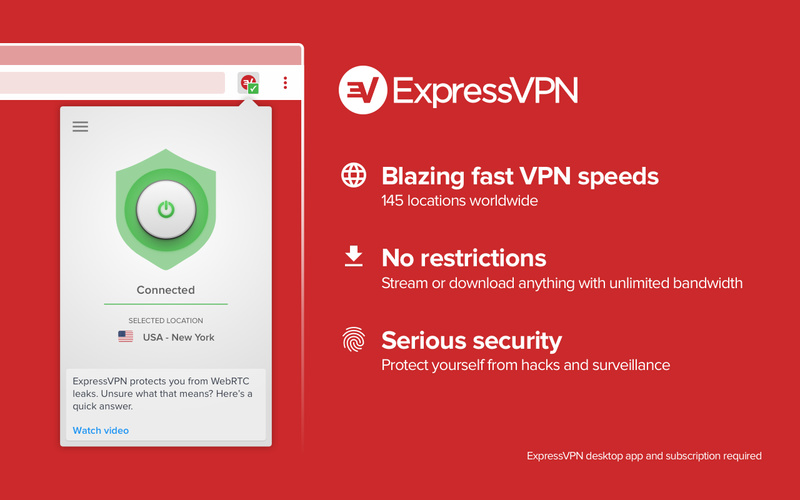A VPN is a virtual private network: a tool that ensures a connection to the internet remains private, while also allowing users to bypass a number of restrictions imposed by ISPs and local government. This is similar to a proxy, which can be found on websites like http://free-proxy-list.net/. These also offer workarounds to restrictions on websites or content. Unlike a proxy, a VPN offers full encryption of any internet activity as well. This often means that your activity is secure unless the person trying to access your information presents a warrant to your VPN provider. In short, VPNs protect the sanctity of the internet: ensuring that it remains a freely available source of information, discussion, and entertainment. Because most internet service providers are not prohibited from collecting or disclosing information and data about your internet activity, including your browsing history, it can be dangerous to leave your data exposed. Your Internet service provider may or may not keep a record of the websites you visit and other online activities, but keeping it safe is your responsibility. Most websites require you to send a DNS request to your ISP, which your ISP can then log and store indefinitely. As a result, you should look for ISPs that are reputable and have positive customer feedback. Not to mention, you can choose your ISP based on the deals and offers provided by them, such as Xfinity deals, but keep in mind their loyalty and background check. Additionally, use a VPN on the devices to protect your data from being compromised. The internet has the potential to be an extremely powerful tool for democracy, free-speech, and self-betterment: but there are those that stand opposed to that idea.
In particular, the Chinese government is well known for placing heavy restrictions on internet use. This is to ensure that the government’s own “narrative” remains undisputed, but of course it is a big restriction on the freedoms and privacy of the huge population that lives there. Good thing they have VPNs!
If you are planning on travelling to travel to China, then using a VPN is an important tool. This will allow you to use social media platforms to stay in touch with family members and friends back home, as well as accessing your favorite shows, and unfiltered news and information.
Read more to learn how to use VPNs while travelling in China, and where to find the best options available.
What is a VPN and How Do They Work?
You might first of all be wondering what a VPN actually does, and how it allows you to browse safely and without restriction.
The answer is that VPNs reroute all of your traffic via a server, effectively meaning that you are bouncing your signal off of this third party. Think of it this way: you connect to a remote computer and that computer then connects to the website that you want to visit. The computer (which is the server) then downloads the information from that website and shows it to you.
Should an ISP look at your traffic, all it sees is that you have connected to a random server in the middle of nowhere: nothing harmful or dangerous. No one can therefore see what websites you’ve been looking at, or prevent you from going there: because you’re only attached to one address! Does this sound like something you’re wanting for your own computer? Look into getting the Best VPN Service by reading below, to find out which VPN server will be the most efficient when traveling.
This also means that you can access sites that would otherwise be blocked in your region. That’s because you once again aren’t actually looking up those sites through your ISPN – you’re just looking up the harmless server that is working as the “middle man.”
The Three Best VPNs for Chinese Travelers
With all that in mind, what are the best VPNs for Chinese travelers? Here are a few top options:
ExpressVPN

ExpressVPN is one of the best known and most widely used VPNs in the world. It is highly popular in China in particular, especially because it has been tried and proven when it comes to navigating around the “Great Firewall.” There are a number of local Hong Kong, Taiwan, and Japan-based servers too, meaning that as you travel around Asia, you’ll be able to continue to enjoy superfast connection speeds.
NordVPN
NordVPN has a team specifically dedicated to getting around government-imposed restrictions in countries like China, as well as Saudi Arabia, and Iran. This works by actively monitoring connectivity and quickly responding to any new blocks or restrictions that get put in place. What this means, is that Nord will work great out the box and shouldn’t experience any lengthy downtimes.
Firefox
The reason that Firefox has made this list is simply that it is A) completely FREE and B) built right into your browser. That means that there is no need to install another piece of software, you can just run anything through your browser when you want to access restricted content. This is also great for other things: such as spoof your IP address on one website while keeping your address the same on plenty of others. And it means that when you are gaming or streaming movies, you don’t need to remember to turn it off!
There are many more VPNs out there, any of which will work great for travelling to China. Give them a go and see which one works the best for your particular needs. Whatever the case, the internet is yours to explore once more!
